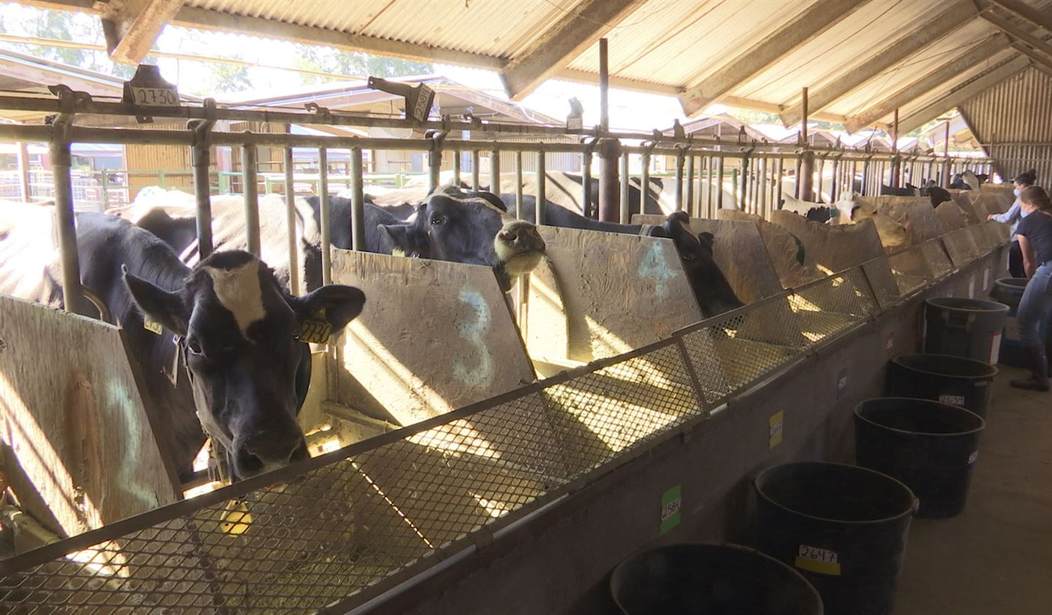I love meat. Not the frozen crap you get today at most grocery stores that have been thawed out and mangled by someone who doesn't know how to cut it. I'm talking about the aged, marbled, prime beef that I used to get at my local butcher shop in the 1980s and '90s. Grill it, roast it, fry it, or boil it. Any way you prepare it is a slice of heaven.
However, there's one big drawback to meat production, according to the climate nannies. Cows eat a lot of grass, which fattens them up very nicely but also causes their digestive tract to produce a lot of flatulence. The cow farts contain a lot of methane, which is very, very, very bad for Planet Earth.
So we're told.
Soon, we'll be seeing "peak livestock emissions." I guess when that happens, no one should light any matches outdoors.
“We need to see major changes in livestock production and consumption — really deep and rapid changes over the next decade,” said Helen Harwatt, an environmental social scientist and lead author of a survey report on livestock emissions.
The problem is that people all over the world love meat and don't want to cut back on eating it. Ants, grubs, and sunflower seeds might be good for us, and some people might even enjoy that stuff. Meat lovers turn up their noses at it, and since there are a helluva lot more meat lovers than grub lovers, the ant-eaters are SOL.
But animal agriculture has largely evaded environmental regulation, and only 12 of the 175 countries that have signed on to the Paris climate agreement have committed to reduce livestock emissions.
Nearly two decades ago, a United Nations report marked the livestock sector as one of the most polluting industries on the planet. Ever since, there’s been a steady drip of research on the need to scale back meat production in high- and middle-income countries.
Industry is fighting back. A well-oiled PR machine composed of shadowy communications groups, industry-funded academics, and pro-meat influencers all push out the message that livestock aren’t so bad for the planet. Their claims have ranged from misleading scientific arguments to hollow corporate greenwashing to outright disinformation.
In truth, the meat industry doesn't need a "well-oiled PR machine." It doesn't need help because meat is one of the few products that sells itself and has been doing so since hominids got up and began walking five million years ago.
But how can climate activists appear noble and courageous fighting for the planet unless they're the underdogs going up against the ag business monolith?
Actually, the climate lobby is far more powerful than any business lobby in existence. Do you think Biden could get away with his EV revolution unless the oil companies were cowed by the green hysterics?
As pressure increases for the livestock industries to reduce emissions, companies and governments have announced a slate of technologies and farming practices they claim will help reduce meat and dairy’s carbon footprint. This includes things like improving manure management, changing animals’ diets and genetics, and “regenerative agriculture,” a type of farming that aims to sequester and store carbon dioxide from the atmosphere inside the soil.
But according to the new survey’s respondents, these industry-touted practices won’t do nearly as much to cut pollution from cow burps and chicken poop as raising and eating fewer animals.
Of course, making fewer meat products will raise the price of meat per pound to where even chicken will be too expensive for the middle and lower classes. That's all right. No doubt the Soylent Corporation will step in and fill the void.
Just make sure you check the label to see what's in it.










Join the conversation as a VIP Member